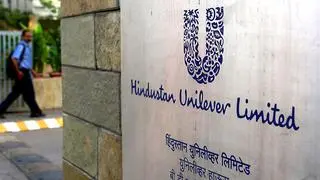Former Delhi Chief Minister and Aam Aadmi Party leader Arvind Kejriwal may find a good support in Tripura’s Power Minister Manik Dey in his tirade against the Union Government’s decision to raise natural gas prices.
While Kejriwal questions alleged corruption in the decision to almost double the price of domestically produced gas, the Tripura Government will be among the worst-hit by the price rise as over 90 per cent of electricity consumed in the State is gas-based. The rest is hydro-electric. In contrast, the national share of gas-based power generation capacity is a mere 9 per cent.
Beginning June 2010, gas prices have increased three times in Tripura.
First came a revision in prices from ₹2,376 to ₹4,700 a cubic metre. It further moved up to nearly ₹7,700 a cubic metre, after the rupee started falling last year.
From April, the gas prices will rise further and cross ₹10,000 a cubic metre.
A serious jolt The impact is huge for Tripura that has successfully used economic development as a tool to contain extremism.
For a hilly State where electricity consumption was once largely restricted to the capital city of Agartala, all the villages in Tripura are today connected by grid power.
One of the corner stones of the State’s development campaign was cheap electricity.
The State now pays nearly ₹40 crore of subsidy every year to ensure distribution of free electricity to its poor farmers and keep the household tariff at an average of ₹3.60 a unit.
While the low per capita consumption and lack of bulk users of electricity limit the prospect of cross subsidisation of tariff in Tripura, Dey was banking on export of surplus power to bridge this gap. But the calculation has gone haywire due to delay in implementation of the transmission line connecting Tripura with National Grid at Bongaigaon in Assam. The project has hit a green hurdle in Assam.
The result is already telling on Tripura’s balance-sheet.
Following the commissioning of the first 363.3 MW unit of ONGC Tripura Power Co (OTPC) on January 4, the State has been losing ₹25 lakh a day (over ₹90 crore on an annualised basis) for inability to sell the excess power. The losses will increase manifold, with another 250 MW increase in supplies scheduled this year.
Major concern The dual impact of the stretched finances of the State government due to revenue loss on surplus electricity and rise in gas prices is too big for Tripura to survive. Dey is apprehensive that the State may be headed for a sharp rise in electricity tariff, throwing the rural development plans out of gear.
“On the one hand, we cannot increase our earnings, for failure of the Centre in implementing key infrastructure projects. And now, the gas prices are increased to unbearable levels. This is a development model for whom?” he asks.
Apparently, Kejriwal has an answer to the question.







Comments
Comments have to be in English, and in full sentences. They cannot be abusive or personal. Please abide by our community guidelines for posting your comments.
We have migrated to a new commenting platform. If you are already a registered user of TheHindu Businessline and logged in, you may continue to engage with our articles. If you do not have an account please register and login to post comments. Users can access their older comments by logging into their accounts on Vuukle.